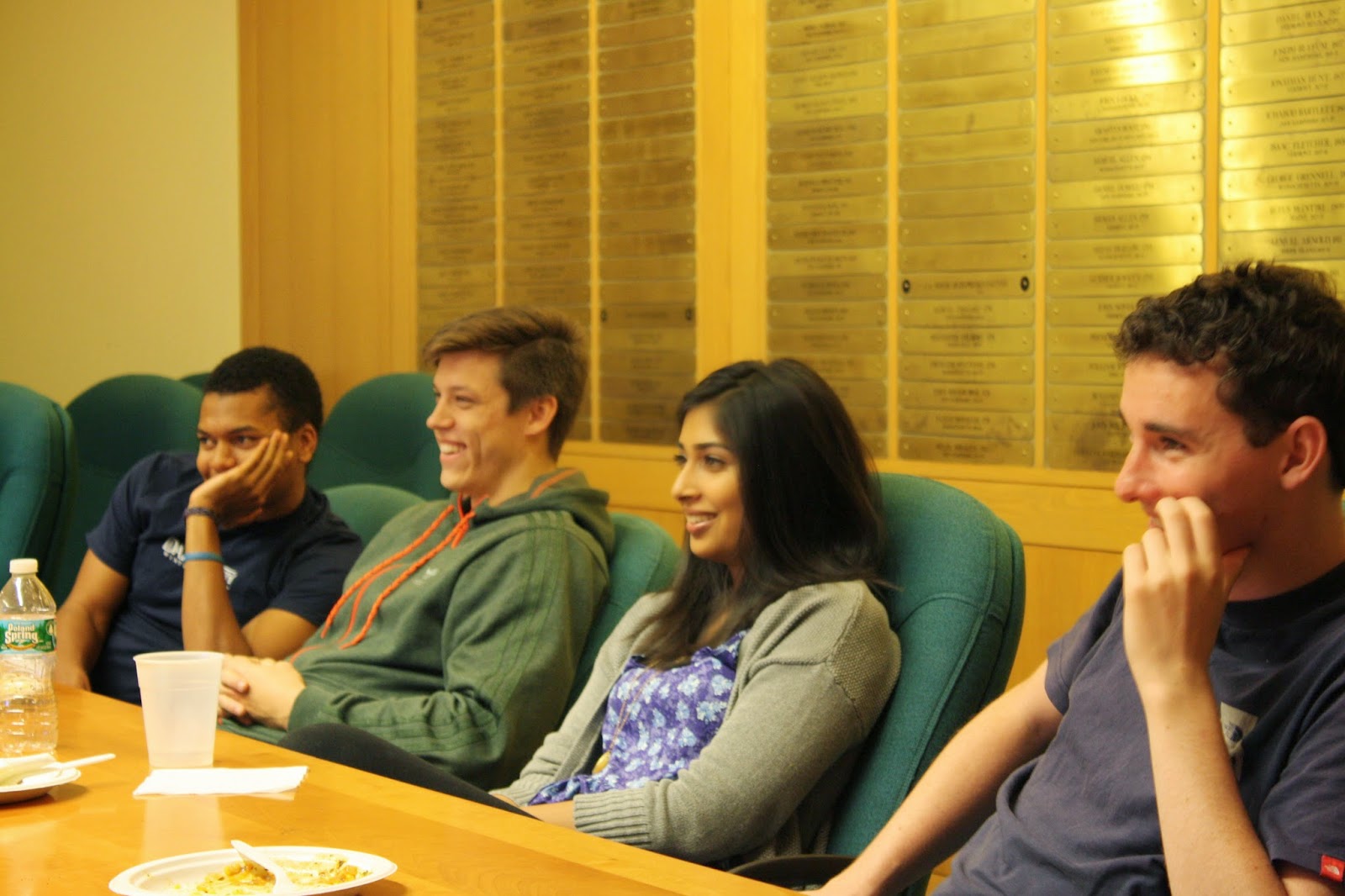- Public Policy
- Leadership
- Funding
- News & Events
- About the Center
Back to Top Nav
Back to Top Nav
Back to Top Nav
Back to Top Nav
This ongoing series explores sessions of the Rockefeller Global Leadership Program (RGLP) through participant narratives. RGLP engages Dartmouth students who have demonstrated leadership skills and would like to extend these skills on a globally conscious level. In this program, students focus on and further develop international leadership competencies, which have become increasingly crucial in corporate, public and non-profit sectors today.
“What if we create our own country right here?” and “Will nations ever agree to open borders?” were some of the questions our guest speaker, Dr. Gama Perruci, posed to my fellow RGLP participants and me at our Monday meeting.
Despite it being our first discussion session as a group, I found the conversation with my fellow participants highly engaging. We were pushed to think about our identities, both in terms of our languages, cultures, or backgrounds and as global citizens. We agreed on certain ideas: that cross-cultural exposure is important, that technology has simplified communications around the world, and that the rise of multinational corporations has changed relationships between nations and people. I heard concepts that I never gave much attention to before, such as the meaning of the nation-state and the fact that a Subway restaurant in Brazil looks exactly like one in New Hampshire.
Disagreements encountered throughout the evening were important in shaping our opinions. Some of us were pessimistic about global understanding. We thought it unrealistic to expect change when so many people hold cultural, religious, and national ties closer to their hearts than anything else. Others thought it really was possible to achieve true global understanding. Some were concerned about the loss of identity and culture in a global context, and a few reflected on the notion that people tend to bond with those most like them.
By the end of the session, I realized that there are some issues that require international cooperation and understanding, but those are few and far between, not yet enough to strengthen ties between nations all around.
-Written by Reem Chamseddine '17, Fall 2014 RGLP Participant

Monday's session featuring Dr. Gama Perruci, a professor of Leadership Studies who focuses on globalization and its progress, started with a historical lesson and hypothetical scenario based on the relationship between monarchs, peasants, and religion. We examined how changes in human interaction occur when certain opportunities arise, such as availability of commodities and the instillation of borders and rule.
Through this lesson, we saw the progression of the peasant from a subject to a powerful individual with sway over leaders. It made me recall Walmart and its Chinese-made goods. The US government is not able to do anything to alter this outsourced manufacturing relationship. The class overall did not seem to think that "global citizenship" is a likely scenario for the near future, mostly because different groups around the world find themselves in different circumstances economically, culturally, and socially. However, it was a good chance to get us really thinking about the realities of globalization and how it might change over time.
-Written by William Peters '15, Fall 2014 RGLP Participant